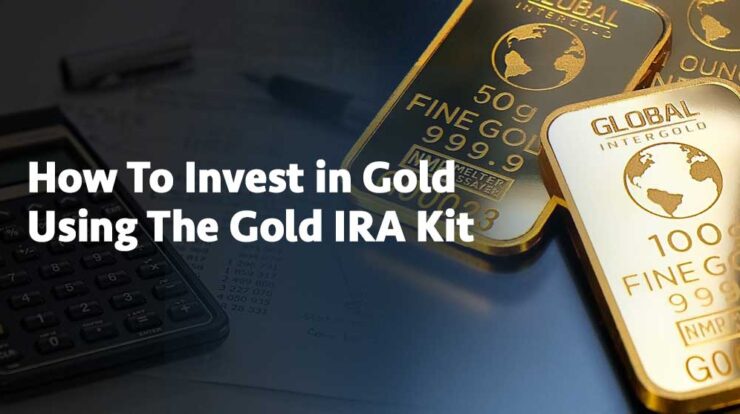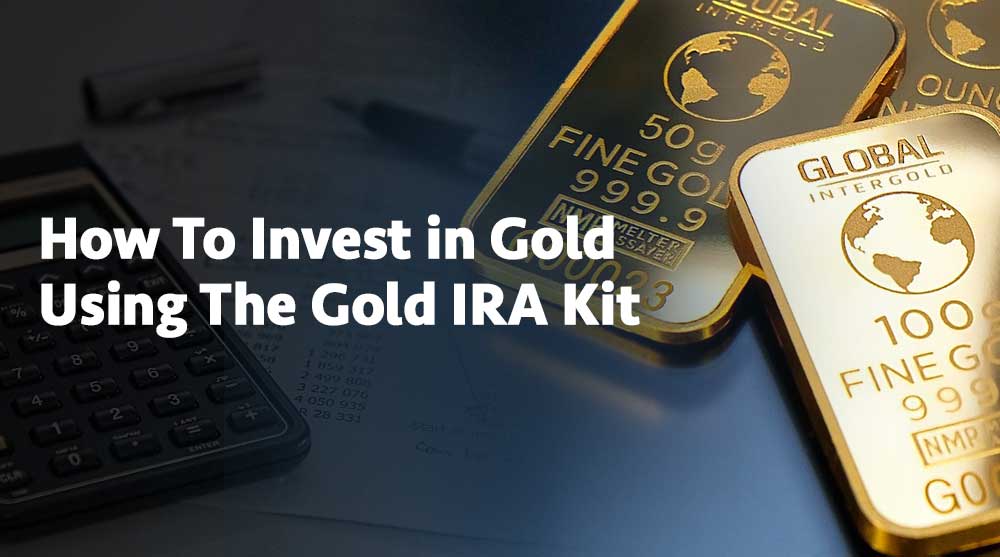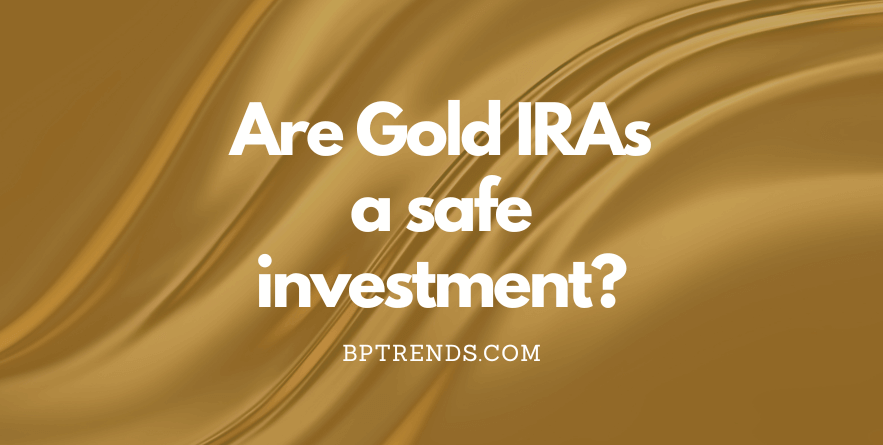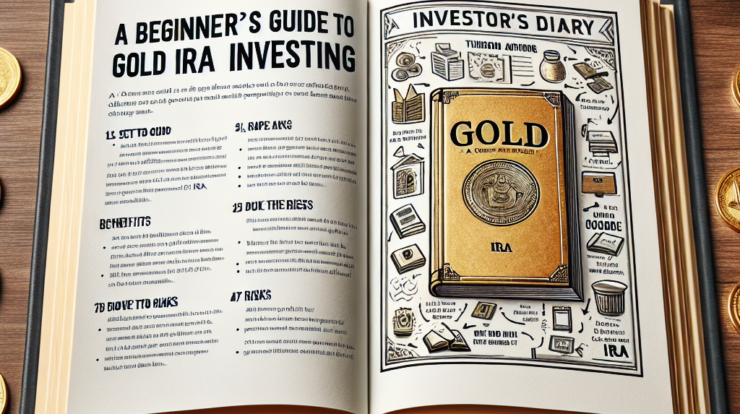
Are you looking for smart investment options to secure your future and leave a lasting financial legacy for your loved ones? Look no further than investing in Gold IRA for estate planning. This article provides expert advice on how investing in Gold IRA can be a valuable addition to your estate planning strategy. By diversifying your investments and including precious metals like gold, you can create a secure and stable financial foundation that can withstand economic uncertainties. Discover the benefits of investing in Gold IRA and how it can help you achieve your long-term estate planning goals.

Click here to understand the basics of gold investing
What is a Gold IRA?
Explanation of a Gold IRA
A Gold IRA, or Individual Retirement Account, is a retirement investment option that allows individuals to hold physical gold and other precious metals as part of their retirement portfolio. Unlike traditional IRAs, which mainly hold stocks, bonds, and mutual funds, a Gold IRA provides the opportunity to own tangible assets in the form of gold bars, coins, or other approved forms of gold.
Benefits of a Gold IRA for Estate Planning
When it comes to estate planning, incorporating a Gold IRA into your investment strategy can offer several distinct advantages. These benefits range from protection against inflation and economic uncertainty to diversification of your investment portfolio. By understanding and harnessing these benefits, you can develop a comprehensive estate plan that aligns with your financial goals and safeguards your wealth for future generations.
Why Consider Gold IRA for Estate Planning?
Protection Against Inflation
One of the primary reasons to consider a Gold IRA for estate planning is its ability to provide protection against inflation. Gold has historically proven to be a reliable hedge against inflation. As the value of paper currency declines, the price of gold typically rises. This inverse relationship makes gold an effective safeguard against the eroding purchasing power of fiat currency over time. By owning gold within your IRA, you can maintain the value of your assets and preserve your wealth for future generations.
Hedge Against Economic Uncertainty
Another compelling reason to include a Gold IRA in your estate planning is its role as a hedge against economic uncertainty. In times of economic volatility or geopolitical unrest, gold tends to perform well as a safe-haven asset. Its intrinsic value and limited supply make it an attractive investment during times of financial upheaval. By diversifying your retirement portfolio to include gold, you can mitigate the risks associated with economic fluctuations and protect your wealth from potential downturns.
Diversification of Investment Portfolio
Diversification is a fundamental principle of sound investment strategy, and incorporating a Gold IRA into your estate planning allows you to diversify your investment portfolio effectively. By allocating a portion of your retirement assets to physical gold, you decrease your reliance on traditional investments such as stocks and bonds. Gold’s lack of correlation with other asset classes can help reduce the overall volatility of your portfolio. A well-diversified portfolio can help safeguard your wealth against market fluctuations and optimize your long-term financial goals.

Learn why gold is considered a safe haven asset
Choosing a Trustworthy Custodian
Importance of a Trustworthy Custodian
When setting up a Gold IRA, one crucial consideration is choosing a trustworthy custodian. A custodian is responsible for safeguarding your gold investments and ensuring compliance with IRS regulations. Since the custodian will handle the purchase, storage, and transportation of your precious metals, it is crucial to select a reputable and experienced custodian to protect your investments.
Researching and Comparing Custodians
To find a trustworthy custodian for your Gold IRA, it is essential to conduct thorough research and compare your options. Look for custodians with a solid reputation, a proven track record, and positive customer feedback. Consider their experience in the industry, the security measures they have in place, and the fees associated with their services. A diligent comparison of custodians will help you make an informed decision and choose a custodian that aligns with your specific needs and preferences.
Questions to Ask When Choosing a Custodian
When evaluating potential custodians for your Gold IRA, it is crucial to ask relevant questions to gain a deeper understanding of their services and capabilities. Some questions to consider include:
- What is your level of experience in handling Gold IRAs?
- How do you ensure the security and safekeeping of the physical gold?
- What are the storage options available?
- What fees are associated with your custodial services?
- Can you provide references from satisfied clients?
- Are you familiar with IRS regulations regarding Gold IRAs? By asking these questions and seeking clarification on any concerns, you can confidently select a custodian who will effectively protect and manage your gold investments.
Understanding IRS Regulations and Tax Implications
IRS Guidelines for Gold IRAs
To ensure compliance with IRS regulations, it is vital to understand the guidelines surrounding Gold IRAs. The IRS requires that precious metals held in an IRA meet specific purity standards. For gold, this typically means that the metal must have a minimum fineness of 0.995. Additionally, there are limitations on the types of gold coins and bars that are eligible for inclusion in a Gold IRA. It is essential to consult the IRS guidelines or seek professional advice to ensure proper adherence to the regulations.
Tax Advantages of a Gold IRA for Estate Planning
Incorporating a Gold IRA into your estate planning can offer certain tax advantages. Traditional IRAs often require distributions starting at age 72, which may trigger taxable income. However, with a Gold IRA, you have the option to take distributions in-kind, meaning you can receive physical gold instead of cash. By choosing this approach, you can potentially defer taxes and maintain the value of your gold holdings. It is crucial to consult with a tax professional to fully understand the tax implications specific to your individual circumstances.
Possible Penalties and Exceptions
It is important to be aware of potential penalties and exceptions associated with Gold IRAs to avoid any unforeseen issues. For instance, early withdrawals from a Gold IRA before the age of 59½ may be subject to a 10% early withdrawal penalty, in addition to ordinary income taxes. However, certain exceptions, such as financial hardship or qualified education expenses, may allow for penalty-free withdrawals. Understanding these penalties and exceptions will help you make informed decisions regarding your Gold IRA and minimize any potential financial setbacks.

Determining the Right Amount to Invest
Consulting with Financial Advisors
Determining the right amount to invest in a Gold IRA is a critical decision that can significantly impact your retirement strategy. Consulting with a financial advisor who specializes in retirement planning and precious metal investments can provide valuable insights and guidance. A knowledgeable advisor can assess your financial situation, investment goals, and risk tolerance to help you create a well-balanced portfolio that incorporates an appropriate allocation of gold.
Analyzing Personal Financial Goals and Risk Tolerance
To determine the right amount to invest, it is essential to analyze your personal financial goals and risk tolerance. Consider your retirement timeline, desired lifestyle, and any financial obligations you may have. Additionally, assess your willingness to accept market fluctuations and potential risks associated with gold investments. By carefully evaluating these factors, you can arrive at a suitable allocation of gold within your overall investment portfolio.
Calculating the Ideal Allocation of Gold in Portfolio
Calculating the ideal allocation of gold in your portfolio involves considering various factors such as your investment goals, risk tolerance, and market conditions. There is no one-size-fits-all approach, as individual circumstances vary. However, it is generally recommended to allocate between 5% and 10% of your overall portfolio to gold. This allocation provides a reasonable balance between potential risk mitigation and capital preservation. Working with a financial advisor can help you fine-tune this allocation to best align with your specific needs and objectives.
Types of Gold Investments for IRAs
Physical Gold (Bars, Coins, etc.)
Physical gold, in the form of bars, coins, or other approved bullion products, is a popular option for Gold IRAs. Physical gold offers tangible ownership of the metal and can be stored securely with a custodian. When selecting physical gold investments for your Gold IRA, it is important to consider factors such as purity, weight, and liquidity. Popular choices include American Gold Eagles, Canadian Gold Maple Leafs, and gold bars from reputable mints.
Gold ETFs (Exchange-Traded Funds)
Gold ETFs, or Exchange-Traded Funds, provide another avenue for investing in gold within an IRA. These financial products allow investors to gain exposure to the price of gold without physically owning the metal. Gold ETFs are traded on stock exchanges, providing flexibility and liquidity. However, it is important to note that owning gold through ETFs may involve additional counterparty risks and management fees compared to physical gold ownership.
Gold Mining Stocks
Investing in gold mining stocks is a more indirect way to gain exposure to gold within an IRA. By purchasing shares of companies engaged in gold mining and exploration, investors can potentially benefit from the performance of the gold industry. However, gold mining stocks are subject to various factors beyond the price of gold, such as operational risks and management decisions. It is important to carefully evaluate individual mining companies and their financial health before incorporating gold mining stocks into your Gold IRA.

Storing and Safekeeping Gold IRA Investments
Home Storage vs. Professional Storage
When it comes to storing and safekeeping your Gold IRA investments, you have the option of home storage or professional storage. While home storage may provide a sense of control and accessibility, it comes with certain risks, such as potential theft or damage. Professional storage facilities, on the other hand, offer enhanced security measures, including physical security systems and insurance coverage. Opting for professional storage can provide peace of mind and ensure the protection of your valuable gold holdings.
Insurance Considerations
Regardless of the storage option chosen, it is crucial to consider insurance for your Gold IRA investments. Insurance can help protect against potential losses resulting from theft, damage, or other unforeseen circumstances. Determine whether your custodian provides insurance coverage or explore separate insurance options to adequately safeguard your gold holdings.
Security Measures and Precautions
To ensure the safety and security of your Gold IRA investments, it is important to implement certain security measures and precautions. If storing gold at home, consider investing in a safe or secure storage system. Install appropriate security systems, such as alarms and surveillance cameras, to deter theft or unauthorized access. If utilizing professional storage, ensure the facility employs robust security measures, including 24/7 monitoring and restricted access. By taking proactive steps to protect your gold investments, you can minimize the risks associated with storage.
Self-Directed IRAs vs. Traditional IRAs
Advantages and Disadvantages of Self-Directed IRAs
Self-Directed IRAs offer more flexibility and control over investment choices compared to Traditional IRAs. With a Self-Directed IRA, you have the freedom to invest in a wide range of assets, including gold, real estate, private equity, and more. This flexibility allows for a more customized investment strategy tailored to your specific preferences. However, with increased control comes increased responsibility. Self-Directed IRAs require diligent research, ongoing monitoring, and adherence to IRS regulations.
Comparison with Traditional IRAs
Traditional IRAs are typically more straightforward and easier to manage compared to Self-Directed IRAs. They primarily consist of publicly traded stocks, bonds, and mutual funds, making them a popular choice for individuals seeking a hands-off approach to retirement investing. Traditional IRAs offer tax advantages, including potential tax deductions for contributions and tax-deferred growth. However, the limited investment options may not provide the same level of diversification or potential for asset protection as Self-Directed IRAs.
Choosing the Right Type of IRA for Estate Planning
When choosing between a Self-Directed IRA and a Traditional IRA for estate planning, it is important to consider your investment objectives and comfort level with active investment management. If you prefer a more hands-on approach and want to include alternative assets, such as gold, in your retirement portfolio, a Self-Directed IRA may be the better option. However, if simplicity, ease of management, and broad market exposure are your priorities, a Traditional IRA may be more suitable. It is advisable to consult with a financial advisor or tax professional to determine the most appropriate type of IRA for your estate planning needs.

Including Gold IRAs in Estate Planning Documents
Consulting with Estate Planning Attorney
When incorporating Gold IRAs into your estate planning, it is highly advisable to seek the guidance of an experienced estate planning attorney. Estate planning involves complex legal considerations, and an attorney can help ensure that your wishes are legally documented and aligned with applicable laws and regulations. An attorney can also assist with the preparation of essential documents, such as wills, trusts, and retirement account beneficiary forms, to ensure seamless integration of your Gold IRA investments into your overall estate plan.
Designating Beneficiaries
Designating beneficiaries for your Gold IRA is a crucial step in estate planning. By specifying individuals or entities as beneficiaries, you determine who will inherit your gold investments in the event of your passing. It is important to review and update beneficiary designations regularly to account for any changes in personal circumstances, such as births, deaths, marriages, or divorces. Failing to designate beneficiaries or keep them up to date may result in unintended consequences and complications during the probate process.
Updating Trusts, Wills, and Retirement Account Forms
To ensure the proper inclusion of Gold IRAs in your estate plan, it is necessary to update relevant documents such as trusts, wills, and retirement account forms. Gold IRA investments should be properly mentioned in these documents to provide clear instructions on their disposition upon your passing. Regularly review and revise these documents with the guidance of your estate planning attorney to reflect your current investment holdings and intentions, ensuring a seamless transition of your wealth to your chosen beneficiaries.
Periodic Review and Rebalancing
Monitoring the Performance of Gold IRA
It is essential to periodically review the performance of your Gold IRA investments to ensure they align with your investment goals and risk tolerance. Monitor the price of gold, assess the performance of your chosen gold investments, and stay informed about market trends and economic factors that may impact gold prices. By regularly evaluating your Gold IRA, you can make informed decisions and take appropriate action if adjustments are warranted.
Rebalancing the Investment Portfolio
As part of your periodic review, consider rebalancing your investment portfolio to maintain the desired allocation of gold. Fluctuations in the value of different asset classes may cause your portfolio’s allocation to deviate from your intended targets. Rebalancing involves buying or selling assets to restore the original asset allocation. By rebalancing, you ensure that the risk exposure and potential returns of your portfolio remain in line with your long-term investment objectives.
Evaluating and Adjusting Estate Planning Strategies
Periodic review and rebalancing of your Gold IRA investments offer an opportunity to evaluate and adjust your estate planning strategies. Changes in personal circumstances, tax laws, investment goals, or regulatory requirements may necessitate modifications to your estate plan. Consult with your financial advisor and estate planning attorney to determine if any adjustments are needed to optimize your estate planning strategies and ensure they continue to align with your overall financial objectives.
In conclusion, a Gold IRA can be a valuable tool for estate planning, offering protection against inflation, a hedge against economic uncertainty, and diversification of your investment portfolio. By choosing a trustworthy custodian, understanding IRS regulations, determining the right amount to invest, and carefully selecting the types of gold investments, you can create a comprehensive Gold IRA strategy that complements your estate planning goals. Including Gold IRAs in your estate planning documents, periodic review and rebalancing, and ongoing evaluation of your estate planning strategies ensure that your Gold IRA investments are integrated seamlessly into your overall financial plan. With proper research, professional guidance, and diligent monitoring, a Gold IRA can play a significant role in securing your financial future and preserving your wealth for generations to come.









